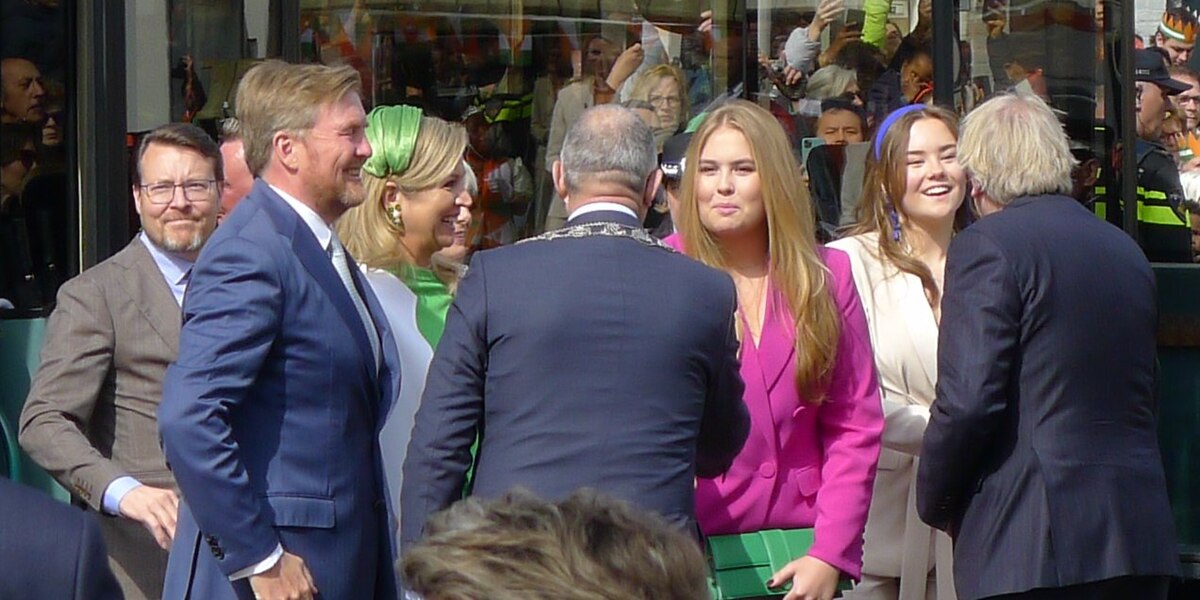Kingsday - NL Host Nation
Kingsday
Each spring, the Netherlands transforms for one day into a country-wide celebration of unity, tradition, and national pride: Koningsdag, or King’s Day. This uniquely Dutch holiday, held on April 26, marks the birthday of King Willem-Alexander and serves as both a personal tribute to the monarch and a public display of cultural identity.
What is now known as King’s Day has roots stretching back to the late 19th century. It began in 1885 as Prinsessedag (Princess’s Day), honoring the birthday of Princess Wilhelmina. In a politically turbulent time, the celebration was introduced to promote national unity and allegiance to the House of Orange-Nassau.
As Wilhelmina became queen, the day evolved into Koninginnedag (Queen’s Day), and with each successive monarch, the tradition adapted. Queen Juliana celebrated her birthday on April 30 with public parades and palace ceremonies. Her daughter, Queen Beatrix, maintained the date out of respect for her mother, but reoriented the celebration around visiting Dutch cities, interacting directly with the public.
In 2013, Beatrix abdicated in favor of her son, Willem-Alexander. The holiday then shifted to April 27 to reflect the new king’s birthday and became Koningsdag. Though the name and style changed, the underlying principle remained: a celebration of the Dutch monarchy as a living, approachable institution.
The
King’s Day of Today: Public Celebration with Personal
Touch
King’s Day
today is an extraordinary blend of festivity and
tradition. Cities and towns across the Netherlands host
events ranging from concerts to neighborhood games and
public markets. Central to the celebration is the
vrijmarkt, or free market, where citizens are allowed to
sell secondhand goods in streets and parks without a
permit. This spontaneous street economy is not only a
highlight of the day but also a reflection of Dutch
egalitarianism and entrepreneurial spirit.
King Willem-Alexander and Queen Máxima maintain the custom of visiting a different city each year. In 2025, the royal family is set to visit Emmen, in the province of Drenthe. These visits are more than symbolic, they are participatory, with the royals engaging in local customs, performances, and dialogue with residents. This annual moment of accessibility is illustrative of the Dutch monarchy’s informal character, and of the public’s enduring affection for it.
Celebrating
in The Hague
While
Amsterdam often garners international attention for its
canal-side festivities, The Hague, seat of the Dutch
government and home to many foreign embassies, offers a
more refined, yet equally vibrant King’s Day experience.
The festivities in The Hague often begin the evening
before, with Koningsnacht (King’s Night), featuring live
music across the city and cultural programming that
appeals to a wide audience.
On King’s Day itself, the city balances celebration with tradition. The royal stables, historic buildings, and cultural institutions may open their doors to the public. In and around the embassy district and political heart of the city, there is a visible intersection of Dutch civic life and ceremonial celebration. For foreign dignitaries, it is a prime opportunity to witness Dutch national sentiment in a public yet grounded form.
Reflections
in a Changing Time
King’s Day
is not merely about celebration, it is also a mirror of
the times. In 2020 and 2021, pandemic restrictions led to
subdued, localized versions of the holiday, dubbed
Woningsdag (Home Day), where people celebrated from their
homes. This resilience highlighted the cultural centrality
of the day, even in difficult circumstances. As the
country navigates current challenges, ranging from
political polarization to debates about the monarchy’s
role, King’s Day continues to offer a moment of national
cohesion.
In 2025, as the Dutch royal family marks more than a decade under King Willem-Alexander’s leadership, the occasion invites both reflection and festivity. For the international community in the Netherlands, it provides a compelling look at how the Dutch combine tradition with modernity, reverence with informality.
A Day of
Dutch Character
King’s Day
is often described as “typically Dutch”, not just because
of the ubiquitous orange clothing, or the vibrant street
life, but because it reflects a national preference for
balance: between pride and modesty, between freedom and
structure, between the symbolic and the pragmatic. For
those observing from abroad, it is a day that encapsulates
the Dutch ethos in full view: cheerful, grounded, open,
and self-aware.

